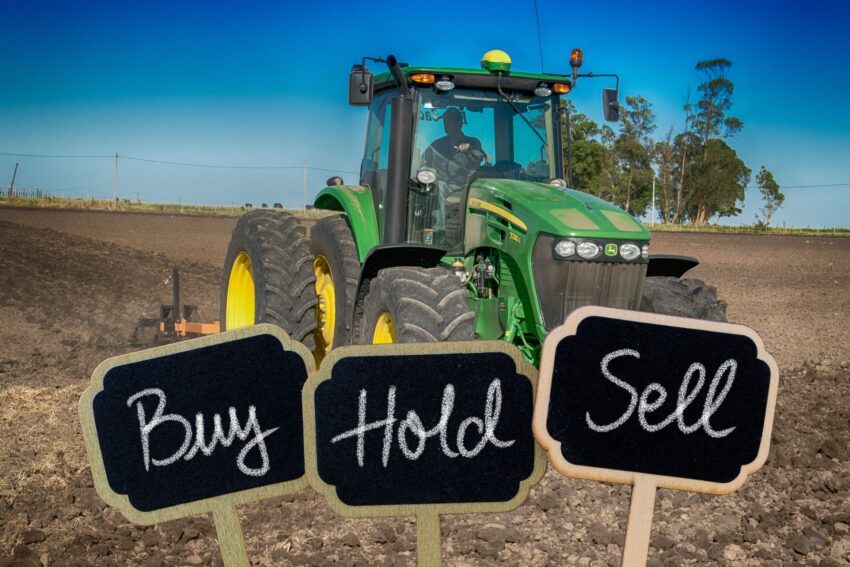In the world of agriculture, managing farm equipment is as crucial as managing crops or livestock. Farmers today face a significant decision when it comes to their used machinery: should they liquidate it through auctions or hold onto it in hopes of a profitable retail sale with a market upturn? This choice is complicated by current market conditions and the strategic implications for both short-term cash flow and long-term investment.
Current Market Glut and Overpricing
The agricultural equipment market is currently witnessing an overflow of used machinery. Platforms like Facebook Marketplace, TractorHouse, and dealership websites are saturated with listings for second-hand tractors, combines, and various implements. However, a large portion of this equipment is not selling as expected, primarily because sellers are asking prices that exceed the current market value. This overpricing is often based on the hope for a return of high commodity prices, which had previously driven equipment values up.
According to recent market analyses, the asking prices for used equipment are significantly higher than what can be realistically achieved, leading to stagnant sales. This trend is reflected in the reports from Sandhills Global, indicating that auction values react more quickly to market changes, often revealing a considerable gap between what sellers ask and what buyers are willing to pay.
The Impact of Holding Equipment
Holding onto equipment with the expectation that the value will increase when the ag economy rebounds has some merit. If grain prices rise, demand for machinery might follow, potentially driving up equipment values. However, even with an improved agricultural economy, the oversupply of machinery could keep prices depressed for longer than anticipated. Many farmers have been holding equipment, waiting for a better market, which inadvertently contributes to this ongoing glut.
For farmers with sufficient capital reserves or those who can still utilize the equipment in their operations, holding might be a strategy worth considering. Equipment like tractors or combines can still be used effectively, even if they are not the latest models, providing additional years of service while potentially appreciating in value.
The Case for Auctioning Equipment
Conversely, if a farmer is in urgent need of cash or if the equipment in question is no longer necessary, auctioning could be the more practical route. Auctions provide immediate liquidity, which can be crucial for operational expenses or debt management. Selling at auction now, rather than waiting for an uncertain market recovery, could prevent further depreciation of the equipment’s value due to age, wear, or obsolescence.
Finding an auction house with low or no commission rates is key to maximizing returns. Seek companies that are able to get a large number of views on your listing, which often means not going with some of the biggest names in the industry, as you could end up getting lost in the crowd. You need a company that can leverage a broad audience to drive competitive bidding, thus potentially fetching higher prices than private sales.
The auction environment often sets a new market price, offering transparency and market validation for equipment values.
Strategic Considerations
To summarize, when deciding between auctioning or holding, consider:
Financial Needs: If cash flow is tight, selling now might be necessary.
Equipment Utilization: If the machinery still has utility in your operation, holding might be beneficial.
Market Trends: Keep an eye on broader economic indicators like commodity prices but remember the lag in equipment market response due to existing supply.
Auction Dynamics: Auction companies can vary in their fees and reach. Selecting one with favorable terms can significantly impact the sale proceeds.
Conclusion
The decision to auction or hold used farm equipment should not be taken lightly. While holding might seem attractive with hopes of a market upturn, the reality of an oversaturated market might not yield the expected financial benefits. For those needing immediate funds or with equipment no longer in use, auctioning could be the best option. Ultimately, strategic foresight, understanding of market dynamics, and personal financial circumstances should guide this critical decision in farm management.


